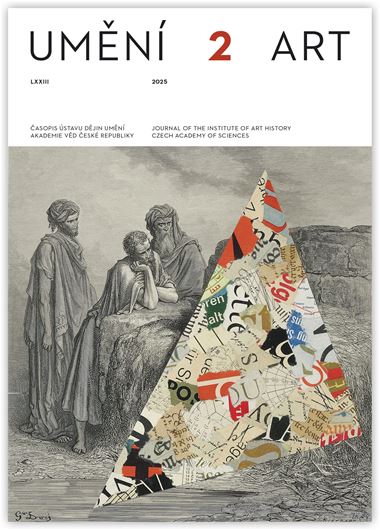Marie Klimešová
Stones of Hatred Still Kill The Illustrated Editions of Jiří Kolář’s Prometheus’s Liver
Although Kolář’s Prometheus’s Liver ranks among the most important works of 20th-century Czech literature, the story of its publication stands as a grim testament to the dominance of ideological interference over respect for cultural values during the totalitarian regime in Czechoslovakia. Not only could it not be published at the time of its creation in 1950, but even twenty years later, in 1970, it was pulped. A samizdat edition released in 1985 by Josef Škvorecký’s Toronto-based exile publishing house ’68 Publishers restricted its circulation primarily to readers in exile. Given Kolář’s concern for the state of society and its moral values, one may assume that the artistic conception of both editions was shaped by the historical context in which they were produced. In this article, I investigate how Kolář, by means of specific artistic appropriations, updated the 1950 text in relation first to the societal crisis that characterised the late 1960s following the events of August 1968, and then again in the early 1980s, amidst the intensifying pressures of normalisation, culminating in 1983 when Kolář completed the collages for the Toronto edition. The concept of the artwork accompanying the cancelled 1970s edition emerged on the threshold of normalisation, under time constraints, which is why some of the collages selected were not created specifically for the book. This version is visually less cohesive; however, the prominent placement of a Boschian collage clearly signals the work’s apocalyptic foundation. Kolář prepared the Toronto edition while in exile in Paris. Meanwhile, his wife was in protracted negotiations with Prague’s nomenclature bureaucrats concerning the fate of Kolář’s work and collections. These circumstances, too, left their mark on the collages. His appropriation of fragments of Bosch’s Christ Carrying the Cross and five biblical illustrations by Gustave Doré, whose subject matter the artist deliberately withholds, confirms the text as an angry biblical poem. The thematic compactness of the collages, concentrated into a unified, minimalist form, employs an anonymised array of motifs and brief literary commentaries to update the text and to articulate a response to the ever-present forces of aggression and cultural degradation. Kolář’s heightened scepticism represents a bleak commentary on the collapse of values in the early 1980s.
Author's email:
marie.klimesova@ff.cuni.cz
DOI: HTTPS://DOI.ORG/10.54759/ART-2025-0203
Full-text in the Digital Library of the Czech Academy of Sciences:
https://kramerius.lib.cas.cz/uuid/uuid:897821c6-bf1c-482b-bde1-69e0782ad243_1
< back

